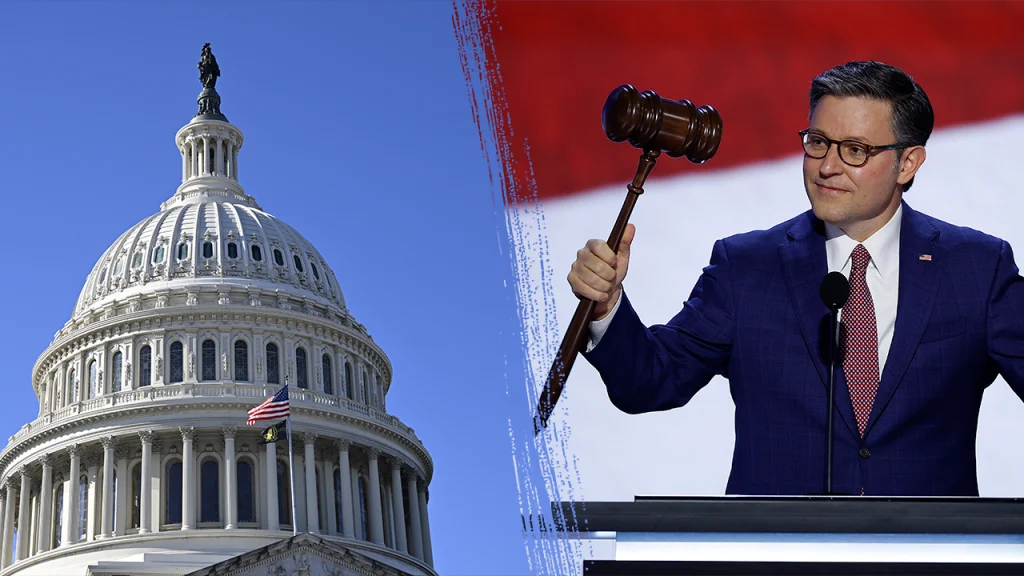The 119th Congress has ushered in a new era of House rules, fundamentally altering the power dynamics within the chamber and solidifying the majority party’s control over the speakership. At the heart of these changes lies a revised threshold for initiating a “motion to vacate the chair,” a procedural maneuver that can trigger a vote to remove the sitting Speaker. Previously, a single member could initiate this motion, a vulnerability that contributed to the ousting of former Speaker Kevin McCarthy. The new rules raise this threshold significantly, requiring nine members of the majority party to initiate the motion. This shift effectively shields the Speaker from challenges originating from the minority party, consolidating power within the majority and potentially limiting bipartisan efforts to remove a Speaker deemed unfit. This change, while lauded by Republicans as promoting stability, has drawn sharp criticism from Democrats who decry it as an undemocratic power grab that silences the minority voice and diminishes accountability.
The controversy surrounding the motion to vacate the chair underscores the deep partisan divisions that characterize the current political landscape. Republicans argue that the previous one-member threshold created an environment of instability, leaving the Speaker perpetually vulnerable to politically motivated challenges and hindering effective governance. They contend that the new rule promotes stability and allows the Speaker to focus on legislative priorities without the constant threat of removal. Democrats, on the other hand, view the change as a blatant attempt to suppress dissent and consolidate power, undermining the traditional checks and balances that ensure accountability and responsiveness in government. They argue that the new rule effectively disenfranchises the minority party and creates a system where the Speaker is beholden only to the majority, potentially emboldening extreme factions within the party.
The genesis of this rule change can be traced back to the tumultuous speakership of Kevin McCarthy. McCarthy, in his bid to secure the gavel, conceded to the lower threshold, a decision that ultimately contributed to his downfall. His ousting, orchestrated by a coalition of eight Republicans and all House Democrats, highlighted the precarious nature of the speakership under the one-member rule. The subsequent election of Speaker Mike Johnson saw a concerted effort to revise the rule, a reflection of the desire for greater stability and control within the Republican ranks. The resulting compromise, negotiated between the more pragmatic Main Street Caucus and the ultra-conservative House Freedom Caucus, reflects the ongoing tension between these factions within the Republican party.
Beyond the motion to vacate the chair, the new rules package includes several other significant changes. Notably, the rules incorporate more gender-specific language, replacing terms like “parent” and “child” with “mother,” “father,” “son,” and “daughter.” This shift in language, while seemingly minor, reflects the broader cultural and political debates surrounding gender identity and language. Additionally, the rules package restricts the Speaker’s ability to expedite legislation through a process known as “suspension of the rules.” This measure was frequently employed by Speaker Johnson to pass critical legislation with bipartisan support, a practice that drew criticism from hardline Republicans who felt it circumvented regular order and limited their influence. The new rules limit the use of suspension of the rules to Mondays, Tuesdays, and Wednesdays, potentially slowing down the legislative process and increasing opportunities for debate and amendment.
The Democratic outcry against these rule changes highlights the growing concerns about the erosion of democratic norms and the increasing polarization of American politics. They argue that these changes represent a dangerous departure from established practices, limiting minority party participation and consolidating power within the majority. This concentration of power, they fear, could lead to a less representative and less responsive government, further exacerbating the existing political divides. The Republican defense of these changes centers on the need for stability and efficiency in the legislative process. They argue that the previous rules created an environment of chaos and instability, hindering the ability of the House to effectively address pressing national issues.
The long-term implications of these rule changes remain to be seen. However, they undoubtedly represent a significant shift in the power dynamics within the House of Representatives, potentially impacting the legislative process, the relationship between the majority and minority parties, and the overall functioning of American democracy. The debate surrounding these changes underscores the fundamental tensions between the need for stability and efficiency in government and the equally important imperative of ensuring accountability and protecting minority rights. As the 119th Congress unfolds, the impact of these new rules will be closely watched as a barometer of the evolving political landscape and the future of American governance.

